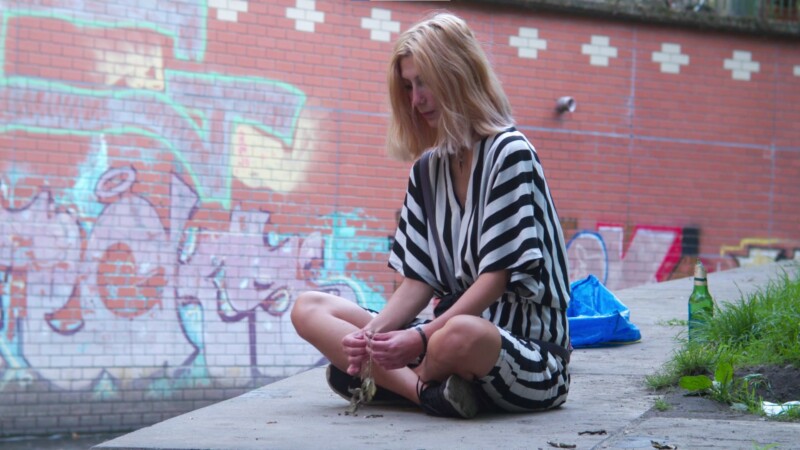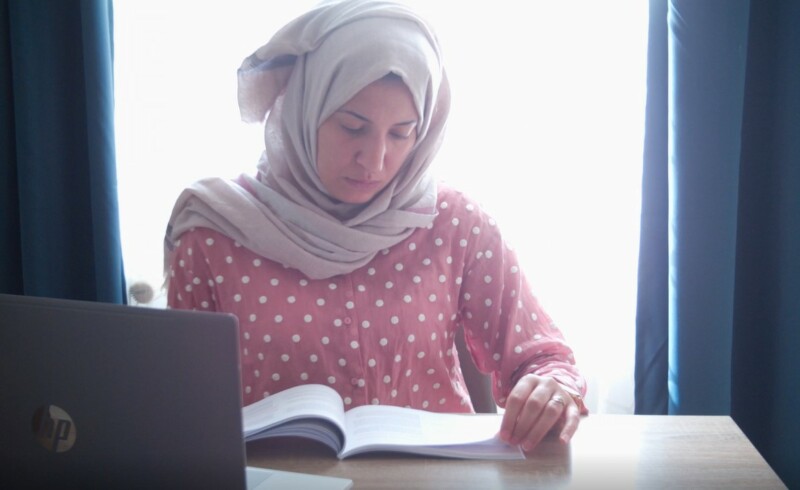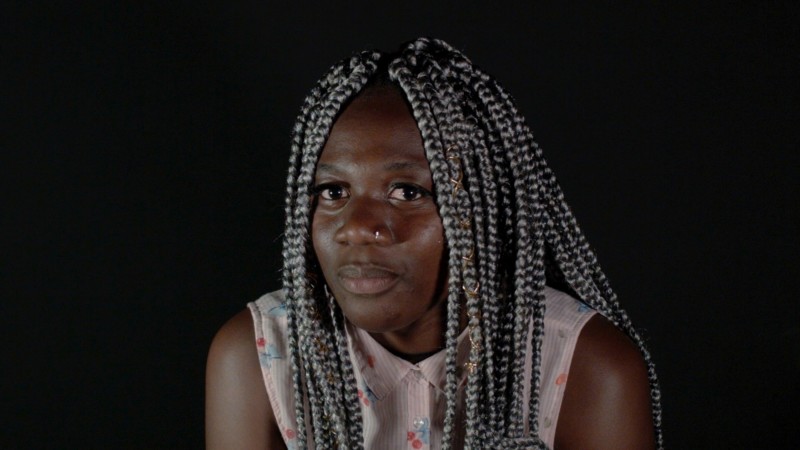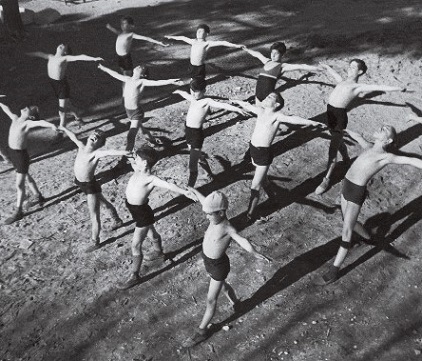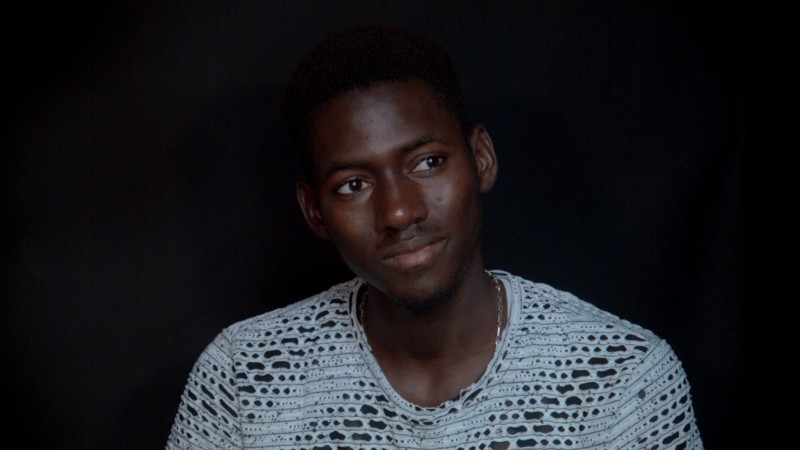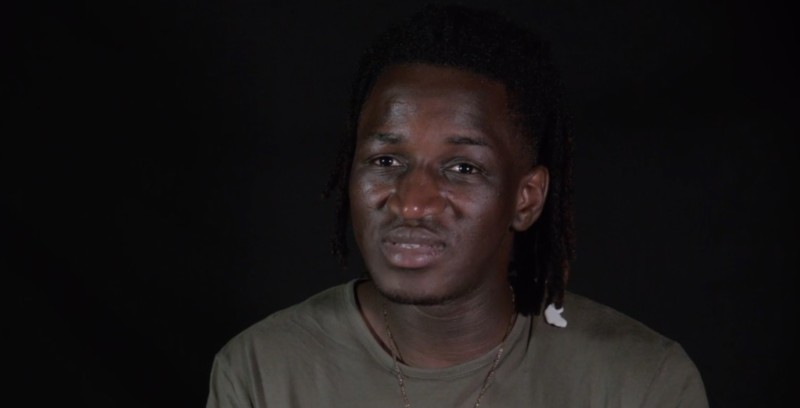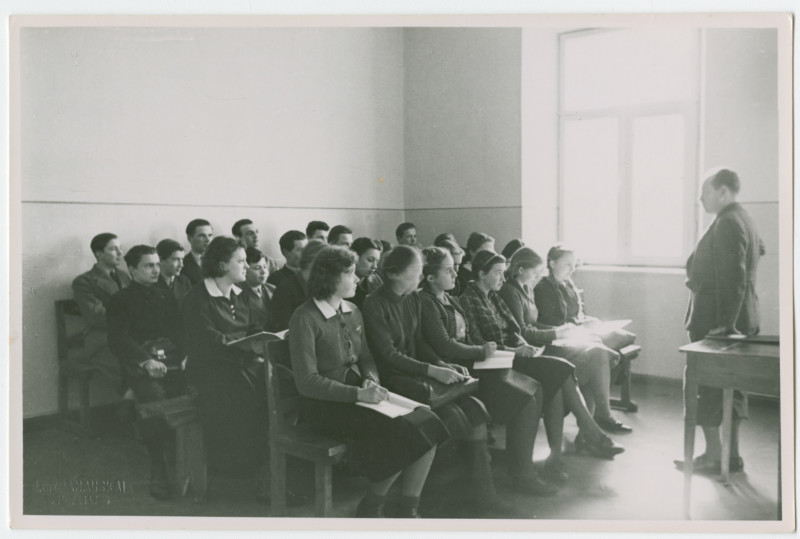We arrived at Messe/Nord ICC because we came by long-distance bus. My acquaintance said: “So, now we are in Berlin. Everyone has to find his own way. My acquaintance will pick me up, but he lives with other people, the two of us are too much.” I said, “But I don’t know anyone here.” And he said, “Then you just have to ask someone where you can seek asylum here.” When he was picked up and they left me there, I started asking people. It was pretty cold, I didn’t know the language, and most of them ignored me. At some point I saw a police car and I asked there, “I just arrived here. I don’t know anyone here. I am a refugee. Where can I apply for asylum here?” The police took me to Wupperstraße. There you could apply for asylum. That’s where I did the small interview. They asked me where I came from and how I got to Germany. They said that I could stay here for now. Tomorrow people would come and do another interview with me. [In the first interview, the so-called “small interview”, it is determined whether another EU state is responsible for the asylum procedure according to the Dublin Regulation or whether it is a confirmatory application. The second interview, the “big interview” at the Federal Office for Migration and Refugees (BAMF), on the other hand, deals with the specific reasons for the applicant’s flight. Based on this interview, the BAMF makes the decision on the asylum application.] I was so tired, I just said yes. When they came, they also came with an interpreter, and said I didn’t need to be afraid. Then we did the interview again. I was under 18, so after the interview someone took me by car to Schönefeld. I stayed there for three weeks. And then I was sent to Schönhauser Allee. And I lived there for about five months. There they helped me to get medication for my illness and also to find a school for me. I was able to clear my head a bit there. And now I live in Osloer Straße in a shared flat with other young refugees.
I started school in Schönhauser Allee and since then I have been studying at school. In the beginning I learned German and English. But I couldn’t concentrate so well and it didn’t work out so well. Now I’m at a new school and I’m only doing German for now.
My dream was to become a motorcycle mechanic. I did that in my home country, too. But when I asked about it here, they said that there are only a few motorcycles here because most people have a car. But that’s not a problem, I want to do an apprenticeship as a car mechanic after school. If that doesn’t work out, I can do another job. But that would be my dream job. And with the training I could then also stay here longer.
Aliou B. left Guinea in 2014 at the age of 13 and experienced hunger, abuse and imprisonment during his flight via Mali, Burkina Faso, Niger and Libya. Almost by chance, he got on an rubber dinghy heading for Italy and witnessed many of the passengers drowning. After a stay in Italy, he finally arrived in Germany at the end of 2017.
In this interview segment, he describes how he arrived in Berlin while still a minor, without knowing anyone. As an unaccompanied minor refugee, he came into the care of the Youth Welfare Office and into special shelters. He was also assigned a guardian for legal representation, among other things. As an unaccompanied minor, Aliou was also more protected from deportations. Some court decisions, for example, put the protection of minors above the Dublin Regulation, which in Aliou’s case would have provided for deportation back to Italy, where he had first arrived in the EU but had not received adequate medical care, for example. With the support of the staff in the Berlin shelters, he was able to receive the necessary medication and also start going to school and learning German. He hopes to complete an apprenticeship as a car mechanic after school.
The interview with Aliou B. was conducted by We Refugees Archive in December 2020.
